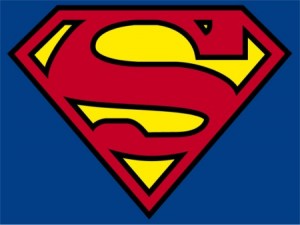A hero is someone who, when forced to choose between what’s practical and what’s right, chooses what’s right.
That’s what I argued last week. It’s easy to say, but there’s a lot of room for error. For one thing, how do you know what the right thing to do is? It’s easy to figure out in a game, where things are less complicated and the moral choices are simpler. I talked about the uncomplicated version on TPK on Monday. Acting from heroic values can motivate you to do the right thing, but even that can get pretty fuzzy. There are other ways, and I’m going to spend a lot of time on one of them. Stakeholder theory.
Stakeholder theory started as a business ethics practice, but has a lot of applications in our every day life. I’ve talked about it a bit here and there, most notably in ethics and social media. But I think heroics is where stakeholder theory really shines, because it will help you understand what the right thing to do is, and why it’s the right thing to do, no matter what your values are. Still, it’s too nuanced to fit into a single post, so I’m going to break it down. This week I’ll talk about the essential concept. Over the next two, I’ll define some stakeholders, and talk about some cases. After that, we’ll get into how to use it, and whether it’s a good idea.
Stakeholder theory is, in a nutshell, the idea that any decision you make should best take into account the interests of the stakeholders, in accordance with your values.
I love definitions.
1. What’s a Stakeholder?
We can’t talk about individual stakeholders before figuring out what makes somebody a stakeholder in the first place. In essence, anyone who’s in a position to benefit from or be harmed by a decision, or whose rights can be respected or violated by a decision is a stakeholder in that decision. If it can’t affect them in any way, they have no stake in it. This is something you already know. If you’re at a poker table in Vegas, you have a stake in whether the person next to you raises or not. They’re in a position to affect you with their choice. Same with everyone at the table. But you don’t have a stake in all the other tables at all the other casinos, even though they’re making the same choices. So for someone to be a stakeholder in your choice, they have to be affected by it in some way.
2. What does this have to do with heroes?
 Thinking about stakeholders means thinking about other people, which is essential to the definition of a hero. More often than not, the practical thing to do is to ignore certain groups of stakeholders. We see businesses and politicians do this all the time, compromising certain groups of people in order to win some small victory. What makes heroes heroes is that they don’t do these kinds of things. Superman doesn’t just care about protecting the innocent, he also looks out for criminals. That’s why he sends them to jail instead of dropping them off buildings. He cares about their well-being, even though they might be horrible people. He does it out of compassion. Martin Luther King Jr. promoted non-violent resistance for the same reason. He cared enough about people, people who would be willing to beat him and throw him in jail, not to hurt them. The ability to look out for stakeholders like this is the essence of being a hero.
Thinking about stakeholders means thinking about other people, which is essential to the definition of a hero. More often than not, the practical thing to do is to ignore certain groups of stakeholders. We see businesses and politicians do this all the time, compromising certain groups of people in order to win some small victory. What makes heroes heroes is that they don’t do these kinds of things. Superman doesn’t just care about protecting the innocent, he also looks out for criminals. That’s why he sends them to jail instead of dropping them off buildings. He cares about their well-being, even though they might be horrible people. He does it out of compassion. Martin Luther King Jr. promoted non-violent resistance for the same reason. He cared enough about people, people who would be willing to beat him and throw him in jail, not to hurt them. The ability to look out for stakeholders like this is the essence of being a hero.
3. Nobody can do that all the time!
You’re right. Nobody’s perfect. I’m going to explore this in a lot more detail over the next month, but the short version is just that you’re right. Superman’s fictional, and even he doesn’t get it right all the time. Everyone has character flaws and blind spots. This doesn’t necessarily prevent us from being heroes, though it does make it a lot harder.
Next week you’ll learn about some examples of stakeholders, and how they might figure into your life. In the meantime, for a more abstract look at heroes, you can read this week’s TPK post on Paladins, who are the extra special heroic heroes of Dungeons & Dragons. If you want to read some more technical material on stakeholder theory, check out Edward Freeman’s Stakeholder Theory of the Modern Corporation, or Yves Fassin’s The Stakeholder Model Refined. See you next week!

???????????????
??????????
???????????????????
?????????????????????????????????????
???????????m(_ _)m
???????????N??????????????????-?? ???,100%?????????????????3?????????5 ??????????????????????????!??????????????????????? ????????( ????)?????????2???????? ?????????: https://www.tentenok.com/product-8316.html